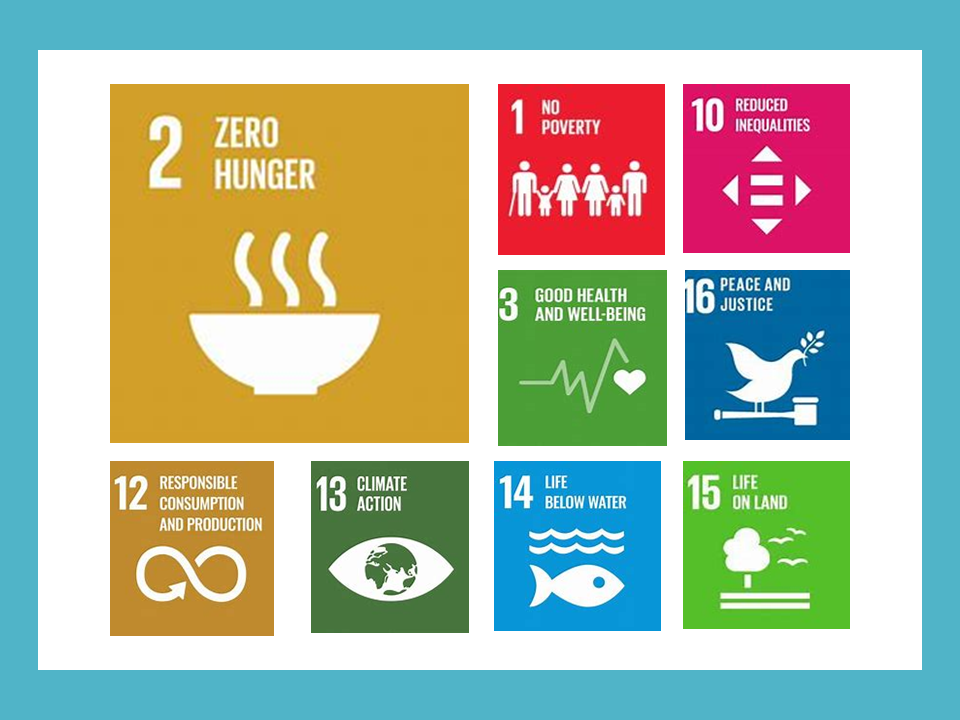Pick Up
934. Addressing the Global Food Challenges of the Future

934. Addressing the Global Food Challenges of the Future
On January 3, an editorial entitled Feeding the future global population was published in Nature Communications. Here is a summary of the article.
Climate change threatens global food production and exacerbates the environmental impacts of food production. Sustainable and socially responsible solutions are urgently needed to ensure future global food security.
Food production is closely linked to several Sustainable Development Goals (SDGs), but achieving the SDG 2 target of zero hunger often conflicts with climate change and biodiversity conservation goals. In addition, the impacts of consumption can spill over to geographically distant regions, widening the global divide. Achieving a sustainable increase in food production therefore requires addressing social inequalities (SDGs 1, 3, 10, 16) and implementing measures to conserve the environment and biodiversity (SDGs 12-15).
The world's population, projected to reach 8.5 billion by 2030 and 9.7 billion by 2050, poses a significant challenge to global food security. Despite slowing growth rates, food-insecure regions such as Africa and Asia are experiencing high population growth. Meanwhile, in high-income countries, the problem of food waste is exacerbating the gap between those who lack access to nutritious food and the rest of society.
Historically, most increases in food production have been achieved through land-use change, which is also responsible for biodiversity loss and climate change. However, scientific innovation has enabled productivity gains, and the Green Revolution of the mid-20th century played a major role in improving food security through high-yielding varieties.
Since then, breeding has also contributed to the stability of food production. However, varieties adapted to current climatic conditions will not guarantee high yields in a changing environment. Further scientific innovation is needed to strengthen the resilience of food production infrastructure and management systems, and to implement strategies such as adapting cropping calendars to climate change.
There is an urgent need to shift to more sustainable diets in response to the environmental impacts of food consumption. One notable initiative, the Planetary Health Diet proposed by the EAT Lancet Committee, aims to improve human health without exceeding the Earth's limits. However, the transition to sustainable diets presents challenges. While plant-based protein and dairy alternatives have lower carbon emissions in terrestrial livestock production, the environmental impacts of water use and ecosystem loss associated with expanded grain production for plant-based foods are noteworthy. Although cultured meat and entomophagy products are gaining consumer acceptance, their environmental and health impacts remain uncertain. Blue food, referring to aquaculture foods, is gaining interest for its high nutritional value, but opinions on its sustainability are divided.
To address food and nutrition security within the Earth's limits, economic barriers to sustainable and healthy diets must be considered. Shifting from animal-based to plant-based or future foods (algae, cultured meats, insect diets, etc.) may reduce food prices in middle- and high-income countries, but could increase costs in low- and middle-income countries.
The expected expansion of agricultural land in the Global North promises increased food production and lower market prices with minimal risk to local ecosystems. However, it is predicted to have a negative impact on biodiversity in the Global South. Strategies for food security must be consistent with the principles of social justice and must address, rather than exacerbate, existing social inequalities associated with increased food and agricultural production.
The interconnected environmental and socioeconomic challenges inherent in the current food production and consumption system demand immediate attention. Urgent science-based solutions are required to navigate these complexities and pave the way for a more sustainable and equitable global food system.
Reference
Feeding the future global population. Nat Commun 15, 222 (2024). https://doi.org/10.1038/s41467-023-44588-y
Contributor: IIYAMA Miyuki (Information Program)
